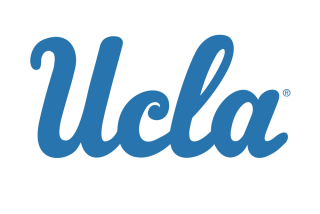NCAA’s slap at Penn State puts focus on NCAA itself
- Share via
When it comes to Penn State, there seems to be no end of judges and executioners.
Top university officials have had their careers guillotined by public outrage, Jerry Sandusky has been tried and convicted in criminal court for sexual abuse, and coach Joe Paterno saw his career ended at the hands of the very university that had for so long adored him.
On Monday, the NCAA stepped in to take its whack at the piñata. In a 45-minute announcement, NCAA President Mark Emmert exercised an unprecedented flexing of institutional muscle in announcing sanctions that will hobble the football program for perhaps a decade.
The penalties include lost scholarships, lost bowl games and, perhaps most notable, a $60-million fine that will go toward the creation of an anti-sexual-abuse foundation.
“Emmert was the hand of vengeance we’ve all wanted to swing at Penn State, to stick up for the innocent victims of Sandusky, and to punish the evil cowards who covered for him,” Gregg Doyel wrote for CBS Sports.
And indeed Emmert’s tone was righteous: “Football will never again be placed ahead of educating, nurturing and protecting young people,” he said.
“Never again”? Bring on the scorn.
“The @NCAA punished Penn State to save face,” ribald comedian Rob Delaney said in a tweet that seemed to crystallize many people’s distrust of the association. “They are the architects of system in which greed & secrecy thrive in pursuit of $ & wins.”
The Sandusky case may have focused the nation’s attention on Penn State, but the culture of athletic lionization that allowed the scandal to fester has existed nationwide; the NCAA itself has admitted as much.
“The NCAA and its members hope that a similar circumstance would not arise on any other campus in the future,” the organization said in a statement regarding the sanctions. “Indeed, these events should serve as a call to every single school and athletics department to take an honest look at its campus environment and eradicate the ‘sports are king’ mindset.”
Sports has become king on the NCAA’s watch. As college athletics have expanded into big businesses, budgets have grown, stadiums have gotten bigger, and players have gotten caught up in the NCAA’s odd and often contradictory “student-athlete” designation.
On Monday, the NCAA’s unprecedented fine on Penn State’s athletic department came as further evidence of the NCAA’s already considerable power. Although self-sustaining and separate from the university’s academic budgets, the department is administered by public employees, not NCAA employees.
“What Penn State did was commit horrific violations of criminal and civil laws, and it should pay every possible price for shielding Sandusky, the child rapist,” Dave Zirin wrote for the Nation.
“This is why we have a society with civil and criminal courts,” he continued. “Instead, we have Mark Emmert inserting himself in a criminal matter and acting as judge, jury and executioner, in the style of NFL commissioner Roger Goodell.”
It’s perhaps a testament to the NCAA’s influence that Penn State has agreed not to fight the punishments.
Athletic financial data are notoriously slippery, but according to filings with the U.S. Department of Education, Penn State’s athletic department had a surplus of $31.6 million in 2010-11, with football accounting for $72.7 million of the $116.1 million in team revenues.
Even assuming that Penn State’s football income remains the same next season — with a futureless team, that seems unlikely — the athletic department’s standing as a profitable unit could be threatened. After all, it’s facing what amounts to a $12-million-per-year fine for five years, plus extra losses from Big 10 conference revenue.
Penn State President Rodney Erickson would appear to have a lot of explaining to do as to how the university is going to pay the football department’s pound of flesh to the NCAA -- without cutting other sports programs, without taking donations and without siphoning tuition dollars from students or funding from academic departments in the university.
Penn State’s football players are now in the odd position of being granted more rights as a form of punishment to their universities. They now have the opportunity to transfer and play for other schools, which is normally restricted. The contradiction, all bound up in NCAA rules, was not lost on a few observers.
“Would students in any other area be constrained from transferring when and to where they wanted to?” Amy Davidson asked over at the New Yorker. “In other words, the school is being punished by being forced to treat its student-athletes like student athletes, and not like indentured employees.”
Perhaps the oddest punishment of all is the long list of wins expunged from Paterno’s record since the scandal began. That move knocks him far down the ladder of winningest coaches, as if the games never even happened.
Except they did, as did the sexual abuse that was covered up for so long; in Penn State’s never-ending quest for absolution, a football record seems to have been about the only thing about the past that can be erased.
And the NCAA did it.
ALSO:
Pickup truck carrying 23 crashes, kills 14
Navy: Nuclear sub fire caused by man who wanted to leave work
Plain-language report card: Agriculture Dept. gets an A; VA gets an F
nation@latimes.com
More to Read
Sign up for Essential California
The most important California stories and recommendations in your inbox every morning.
You may occasionally receive promotional content from the Los Angeles Times.














